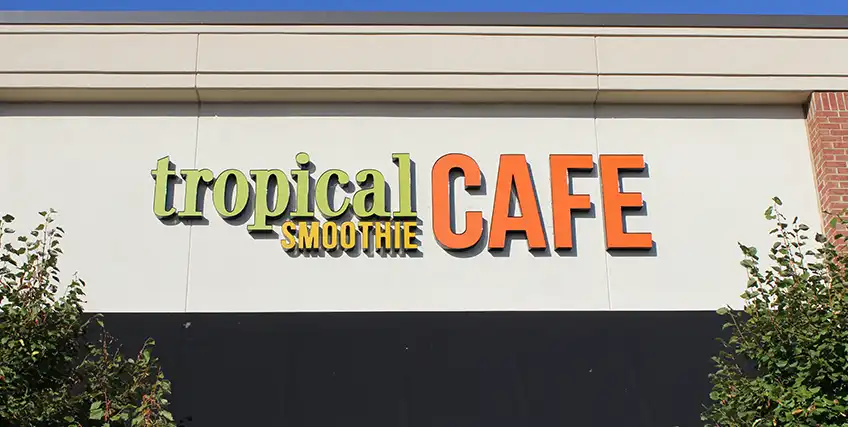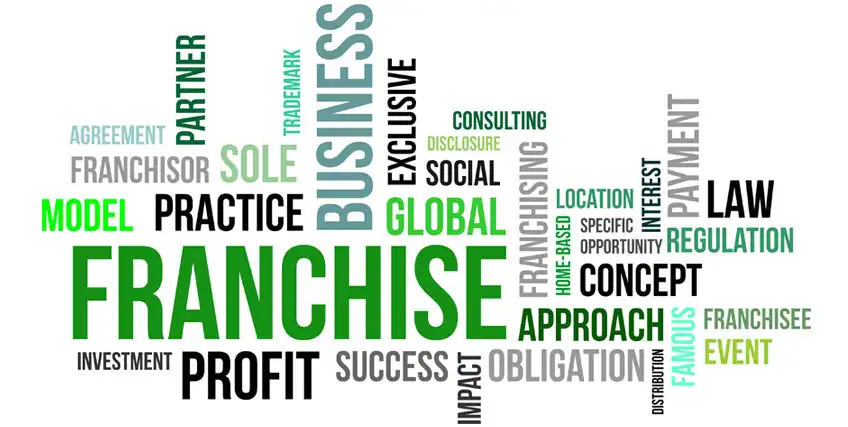Franchise Funding Made Simple.
Looking for Business Financing?
Apply now for flexible business financing. Biz2Credit offers term loans, revenue-based financing, and commercial real estate loans to qualified businesses.
Set up a Biz2Credit account and apply for business financing
Buying a franchise gives you a head start. But funding it isn’t always easy. Whether you're an experienced business owner or a first-time entrepreneur, franchise funding plays a key role in getting started.
The cost of buying into a franchise includes franchise fees, startup costs, equipment, and working capital. Most people don’t have that kind of cash on hand. That’s where franchise loans and other financing options come in.
There are many ways to get the right funding - each with its pros, cons, and eligibility rules. You’ll need to choose what fits your business model, credit history, and long-term goals.
This guide covers how franchise funding works, the options available, and what business owners should know before taking the leap.
What is Franchise Funding?
Franchise funding refers to the money you need to start or grow a franchise business. It covers everything from the franchise fee and startup costs to equipment, leasing, and working capital.
Many lenders offer franchise loans to help borrowers cover these costs. You can also explore SBA loan for franchise opportunities or use personal savings, retirement funds (ROBS), or home equity to secure funding.
Funding options depend on your credit score, net worth, business plan, and the strength of the franchise brand you’re joining. Some franchisors offer internal financing or work with approved lenders. Others may require a certain down payment or net worth from franchise owners.
Franchise funding helps small business owners buy into an established brand. It gives them the tools to operate under a proven business model, often with lower failure rates than independent startups.
How to Find a Franchise That Fits Your Budget
Not all franchises cost the same. Some require around $500,000 or more. Others can be started with less than $50,000. The key is to match your funding strategy to your available capital.
Look at total startup costs, including franchise fees, equipment, real estate, licensing, and working capital. Then consider what you can afford through personal assets, loans, or other financing options.
Low-cost franchise opportunities are a good fit for first-time business owners or those with limited credit history. Franchisors often disclose funding requirements, including minimum liquid capital and net worth.
Choosing the right franchise comes down to aligning your budget with your business goals.
Franchise Funding: Pros of Owning a Franchise
Built-in Business Model
Franchise businesses come with a ready-made model. You don’t need to build systems from scratch. The franchisor provides training, manuals, and support.
For entrepreneurs with limited experience, this setup lowers the learning curve. Funding solutions become easier to secure when lenders see a proven model. SBA loans and traditional bank loans often favor franchise brands with strong track records.
Easier Access to Financing
A strong franchise brand makes it easier to get a business loan for franchise ownership. Lenders feel more confident funding established models. Some even have franchise loan programs for specific brands.
Whether you apply for a small business loan for franchise growth or an SBA loan for franchise startup, having a well-known franchisor behind you improves your odds.
Ongoing Support and Training
Franchise owners get more than a name. They get access to systems, tools, and franchisor guidance. This includes marketing plans, supply chains, and staff training.
This ongoing support helps boost cash flow and lowers the risk of business failure. It's also something lenders consider when reviewing franchise funding applications.
Faster Path to Profit
Because franchise businesses already have brand recognition and customer trust. You can achieve profitability quicker than a new business would. Franchise loans help cover startup costs, and the built-in marketing support means you can focus more on operations. This improves your return on investment and repayment terms.
Franchise Funding: Cons of Owning a Franchise
High Startup Costs
Franchise ownership isn't cheap. You may need to pay franchise fees, equipment costs, and rent upfront. This can add up to hundreds of thousands of dollars. A loan to buy a franchise can help. But not all borrowers qualify. You may need strong credit, personal savings, and a clear business plan.
Limited Flexibility
Most franchisors have strict rules. They control marketing, suppliers, pricing, and more. You can’t always make decisions like you would in a new business. This can be frustrating for entrepreneurs who want full control. Lenders also evaluate whether you can stick to the business model.
Ongoing Fees and Royalties
Franchise owners pay monthly royalties or advertising fees. These cut into your cash flow and profits. If you’re relying on a small business loan for franchise operations, be sure to factor in these costs. They affect your repayment terms and long-term funding strategy.
Shared Reputation Risks
One franchise location’s poor performance can affect the entire brand. You’re tied to the actions of others in the network.
This risk matters to lenders, especially when you’re applying for a franchise loan or SBA loan for franchise expansion. A tarnished brand can impact your funding options.
How to Obtain Franchise Funding
Check Your Financial Health
Start by reviewing your credit score, assets, and net worth. Lenders will ask about your debt-to-income ratio and overall financial strength. Whether you're applying for a business loan for franchise ownership or an SBA loan for franchise setup, a strong financial profile improves your approval odds.
Create a Strong Business Plan
Lenders want to see a clear business plan. This includes startup costs, revenue forecasts, and an outline of your franchise brand’s market potential. Small business loan applications often get approved faster when backed by solid data and a clear growth strategy.
Compare Lenders and Loan Types
Not all franchise funding options are the same. Compare interest rates, repayment terms, and down payment requirements. Explore SBA 7 (a) loans, traditional bank loans, and alternative financing options like rollovers for business start-ups (ROBS) or home equity loans.
Understand Franchisor Financing
Some franchisors offer internal loans or partner with lenders to support new franchisees. These programs can include lower rates or flexible repayment options. If you qualify, it’s a simpler way to secure funding and cover initial costs like franchise fees or leasing expenses.
Gather Your Documents
To apply, you’ll need tax returns, personal financial statements, a business plan, and sometimes a franchise agreement. These documents help lenders assess risk and ensure your new business is viable. A complete application speeds up the process.
Options for Funding a Franchise
Franchise funding isn’t one-size-fits-all. You can explore multiple funding solutions depending on your credit history, business goals, and available assets.
SBA Loans
SBA loans for franchise businesses offer low interest rates and long repayment terms for qualified applicants. The U.S. Small Business Administration partially guarantees these loans, reducing risk for lenders. SBA 7 loans are popular among small business owners and are often used for startup costs and real estate.
Traditional Bank Loans
Traditional bank loans provide fixed terms and rates. They work well if you have a high credit score, strong net worth, and collateral. Banks often fund franchise loans for well-known brands or experienced borrowers with solid business plans.
Rollovers for Business Start-Ups (ROBS)
This strategy lets you use retirement funds without penalties to buy a franchise. It’s best for borrowers who want to avoid interest payments or down payments. ROBS can help fund a new franchise quickly, but legal and tax compliance is critical.
Franchisor Financing
Some franchisors offer direct financing or preferred lender programs. These help franchisees secure funding faster. If the franchise brand is strong, lenders may offer better terms. This option can simplify funding for business startups.
Lines of Credit and Term Loans
Business lines of credit or term loans are flexible funding options. They work well for working capital, equipment, or leasing costs. Many franchise owners use them to manage cash flow during the early months of operation.
Franchise Loans Articles
How to Start a Hotel Franchise: Costs, Fees, and Profits
Embarking on the journey of starting a hotel franchise is a significant endeavor, given the substantial initial investments required compared to many other industries.
Best Funding Strategies for Buying a Restaurant Franchise
Do you want to open a new restaurant brand but avoid the risk and stress of developing a concept and launching it on your own?
How Much Does It Cost to Open a Five Guys Franchise?
Five Guys is one of the nation’s most beloved fast-casual restaurants. A hotspot for hamburgers, French fries, and milkshakes
What to Look for in Small Business Loan Providers for Franchisees
There are times when you want to expand your business when you see constant success in it. You would want to open your business in new locations to establish your identity there.
Common Franchise Complaints Vs Franchise Benefits: What Every Business Owner Needs to Know
Many aspiring entrepreneurs consider franchising as a stepping stone to gain entry intoenter business ownership.
3 Proven Steps to Craft a Profitable Franchise Business Plan
As said, “Dreaming is the first step, planning is the journey”, it is important to draft a well-structured franchise business plan to become a successful franchise owner.
What is the Cost to Buy a Sonic Franchise
Sonic, also known as Sonic Drive-In, is an iconic American fast-food chain. You may be familiar with Sonic, having visited franchises for great
What Is the Cost to Start a Tropical Smoothie Franchise?
Tropical Smoothie is a new, rising, and popular smoothie chain. Originally serving only smoothies, they have since expanded to offer various food items.
The ABCs of Owning a Franchise and Financing One
Owning a franchise provides the opportunity for an individual to go into business for himself/herself without the rigors of
FAQs
1. What is franchise funding?
Franchise funding is the money needed to start or expand a franchise business. It includes costs like franchise fees, leasing, equipment, and working capital. Entrepreneurs often use franchise loans, SBA loans, or personal assets to cover startup costs. Lenders evaluate your credit score, business plan, and net worth before offering a loan to buy a franchise.
2. How can I qualify for a franchise loan?
To qualify for franchise loans, lenders look at your credit history, income, and experience. A strong business plan, steady cash flow projections, and some form of collateral or down payment help. Many small business owners also consider SBA loan for franchise purchases to secure better interest rates and repayment terms.
3. Can I use retirement funds to fund a franchise?
You can use retirement funds through ROBS (Rollovers for Business Start-Ups). This allows you to invest in your franchise business without early withdrawal penalties. It’s a useful funding strategy for entrepreneurs who want to avoid traditional bank loans or high-interest financing options.
4. What are the benefits of using SBA loans for franchises?
SBA loans for franchise businesses may offer lower interest rates and flexible repayment terms for qualified applicants. Backed by the U.S. Small Business Administration, they reduce lender risk. These loans are ideal for new business startups or small business owners who need long-term financing to cover startup costs and working capital.
5. What role does my credit score play in getting franchise funding?
Your credit score affects loan approval, interest rates, and funding limits. A higher score opens access to better franchise loan options, including traditional bank loans and SBA 7(a) loans. If your credit is low, you may need to provide a larger down payment or consider alternative financing options.
Frequent searches leading to this page
Term Loans are made by Itria Ventures LLC or Cross River Bank, Member FDIC. This is not a deposit product. California residents: Itria Ventures LLC is licensed by the Department of Financial Protection and Innovation. Loans are made or arranged pursuant to California Financing Law License # 60DBO-35839









